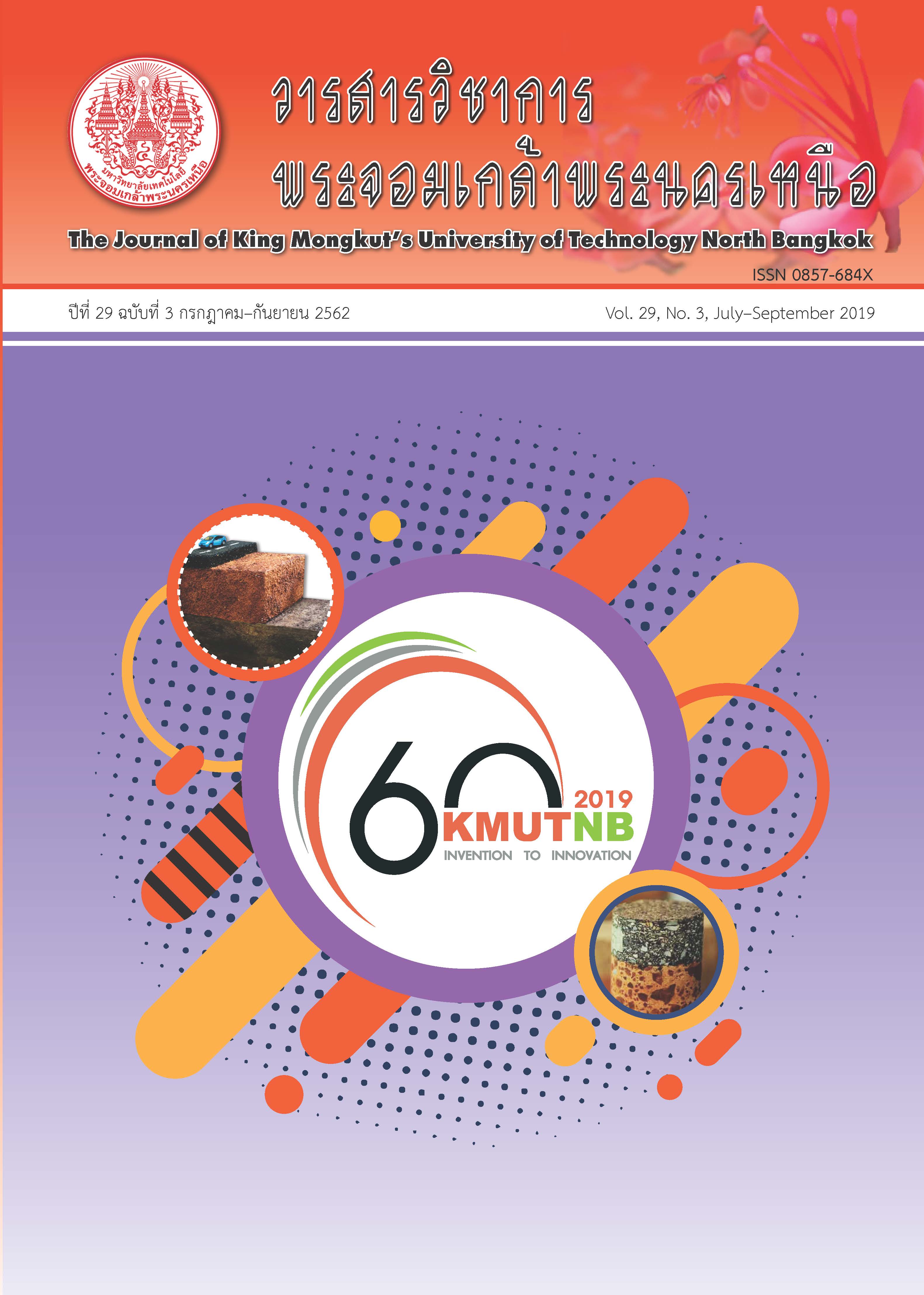รูปแบบคลาวด์เลิร์นนิงแบบอัจฉริยะเพื่อพัฒนาการรู้ดิจิทัลและทักษะการเรียนรู้แบบร่วมมือกัน
Main Article Content
บทคัดย่อ
คลาวด์เลิร์นนิงแบบอัจฉริยะ เป็นเครื่องมือสำหรับการเรียนรู้ที่สามารถปรับเปลี่ยนรูปแบบการให้เนื้อหาและแบบทดสอบแก่ผู้เรียนที่เหมาะสมตามลักษณะการเรียนรู้รายบุคคลและกิจกรรมแบบกลุ่ม งานวิจัยนี้มีวัตถุประสงค์ 1) เพื่อออกแบบรูปแบบคลาวด์เลิร์นนิงแบบอัจฉริยะเพื่อพัฒนาการรู้ดิจิทัลและทักษะการเรียนรู้แบบร่วมมือกัน 2) เพื่อประเมินความเหมาะสมของรูปแบบคลาวด์เลิร์นนิงแบบอัจฉริยะเพื่อพัฒนาการรู้ดิจิทัลและทักษะการเรียนรู้แบบร่วมมือกัน โดยใช้แบบสอบถามสำหรับประเมินความเหมาะสมขององค์ประกอบของคลาวด์เลิร์นนิงแบบอัจฉริยะ ในด้านการออกแบบองค์ประกอบของรูปแบบคลาวด์เลิร์นนิงแบบอัจฉริยะ จากผู้เชี่ยวชาญจำนวน 7 ท่าน ที่มีประสบการณ์ด้านการออกแบบการเรียนการสอน และเทคโนโลยีการศึกษา ผลการวิจัยโดยใช้แบบประเมินความเหมาะสม พบว่า รูปแบบคลาวด์เลิร์นนิงแบบอัจฉริยะเพื่อพัฒนาการรู้ดิจิทัลและทักษะการเรียนรู้แบบร่วมมือกัน มีค่าเฉลี่ย 4.48 (ส่วนเบี่ยงเบนมาตรฐาน 0.51) มีความเหมาะสมอยู่ในระดับมากที่สุด
Article Details
บทความที่ลงตีพิมพ์เป็นข้อคิดเห็นของผู้เขียนเท่านั้น
ผู้เขียนจะต้องเป็นผู้รับผิดชอบต่อผลทางกฎหมายใดๆ ที่อาจเกิดขึ้นจากบทความนั้น
References
[2] P. Wannapirun and N. Wattananan, “Digital intelligence,” Journal of Technical Education Development, vol. 29, no. 102, pp. 12–20, 2017.
[3] S. Tadawattanawit, “The characteristics of the graduates in accordance with the development of Thailand according to the “Thailand 4.0” Economic Model,” Dusit Thani College Journal, vol. 12, no. 2, pp. 404–416, 2018.
[4] W. Panit, “21st century skills,” in 21st Century Learning Path for Disciples, 3rd ed. Bangkok: Sod Sri Saritwong Foundation, 2012, ch. 1, pp. 9–48.
[5] M. Tiantong, “Use of IT for teaching and learning in the Education 4.0 age,” The Jornal of King Mongkut’s University of Technology North Bangkok, vol. 28, no. 3, pp. 489–491, 2018.
[6] A. Rattanatirakul, “Education as a service for instructional in the digital age,” Journal of Pacific Institute of Management Science, vol. 4, no. 1, pp. 308–320, 2018.
[7] Y. Bai, S. Shen, L. Chen, and Y. Zhuo, “Cloud Learning: A new learning style,” in Proceedings International Conference on Multimedia Technology, 2011, pp. 3460–3463.
[8] S. Wanotayapitak, “Integration of blockchain to cloud computing in e-portfolio,” The Jornal of King Mongkut’s University of Technology North Bangkok, vol. 28, no. 3, pp. 677–686, 2018.
[9] W. Thongyu, “Intelligence online system for automatic route planning by using genetic algorithm,” The Jornal of King Mongkut’s University of Technology North Bangkok, vol. 28, no. 4, pp. 789–798, 2018.
[10] K. Sujaree and S. Jirawongnusorn, “Blood vehicle routing problem by hybrid cuckoo search algorithm,” Kasem Bundit Engineering Journal, vol. 8, no. 2, pp. 206–226, 2018.
[11] G. Sriharee, “Software engineering prospective on digital game-based learning for thailand education 4.0,” The Journal of King Mongkut’s University of Technology North Bangkok, vol. 28, no. 2, pp. 477–488, 2018.
[12] S. Sitti and S. Sopeerak, “The web-based instruction model based on connectivism learning theory to enhance problem-solving skill in information and communications technology of higher education students,” Journal of The Far Eastern University, vol. 8, no. 2, pp. 102–112, 2015.
[13] R. Laoha and N. Laoha, “The development instructional design flipped mastery classroom model using connectivismtheory on virtual classroomtowards creative thinking skillfor students in higher education,” Pimontam Research Institute Journal, vol. 5, no. 1, pp. 227–238, 2018.
[14] K. Lertbumroongchai and P. Wannapiroon, “Connectivist digital learning model via cloud technology to enhance creative media innovation construction,” Journal of Thonburi University, vol. 12, no. 29, pp. 221–228, 2018.
[15] A. Im-erbtham, S. Inthapichai, and T. Boonyasopon, “Development of quality management in water distribution maintenance system model for branch office of metropolitan waterworks authority,” The Jornal of King Mongkut’s University of Technology North Bangkok, vol. 28, no. 3, pp. 649–656, 2018.
[16] M. Sopa, K. Jeekratok, and N. Sungsuthi, “An application of cuckoo search algorithm for decision support system of selected the item quality,” in Proceedings The Eleventh National Conference on Computing and Information Technology, 2015, pp. 320–325.
[17] Y. Thepsuriyanon, J. Ketchatturat, and C. Tuipae, “The development of performance appraisal saytem for teacher in saint gabriel’s foundation of thailand by using hybrid evaluation approach,” Journal of Education Khon Kaen University, vol. 35, no. 3, pp. 40–48, 2012.
